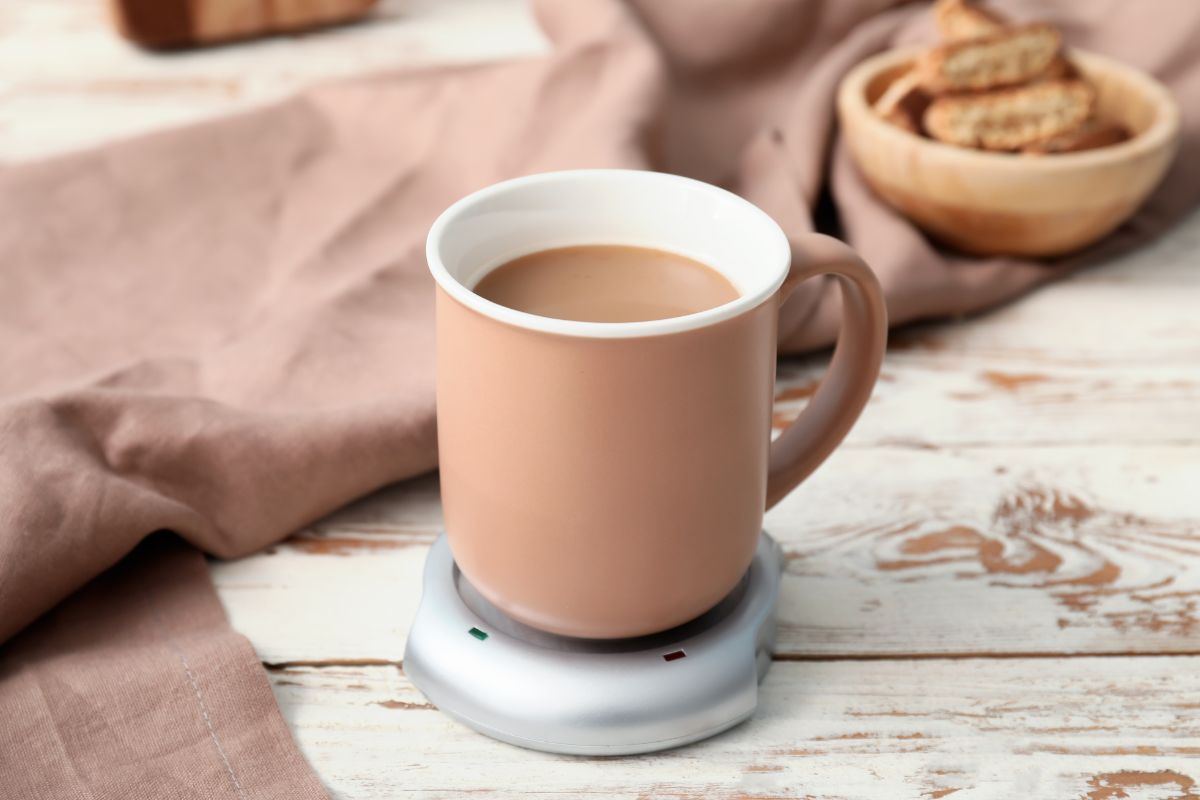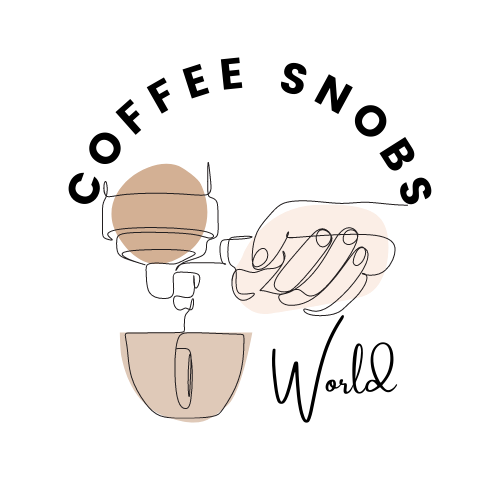Coffee and Dizziness
Can coffee make you dizzy? If you have ever felt dizzy after taking a cup of coffee, the beverage could be the issue.
Some people have reported feeling dizzy soon after having a cup of coffee. We will explore what causes dizziness and what you can do when you experience dizziness as well as how to prevent feeling dizzy when you drink coffee.

Can Coffee Make You Dizzy?
So can coffee make you feel dizzy? Coffee contains caffeine, an alkaloid, a natural mineral found in coffee beans, tea, and cocoa.
Caffeine is a stimulant that affects the central nervous system and can lead to increased heart rate, high blood pressure, and release of cortisol and adrenaline.
Caffeine also helps in increasing focus and high energy levels. These effects can result in lightheadedness and dizziness.
So can too much coffee make you feel dizzy? There are three incidents where you can get dizzy from coffee; when you are developing a coffee tolerance, a caffeine sensitivity, and when you are experiencing a coffee overdose.
These incidences can be severe and coupled with other symptoms such as lightheadedness, nausea, vomiting, and a headache.
How to Get Rid of Dizziness After Drinking Coffee
The Food and Drug Administration (FDA) recommends the amount of caffeine per person a day is 14.11 ounces (400 grams) which is about four cups of coffee.
Can coffee make you dizzy and lightheaded? When you consume a lot of caffeine, it could result from an overdose which can cause dizziness and other symptoms.
Dizziness after consuming coffee could be due to developing caffeine sensitivity.
If you want to know how to get rid of dizziness after drinking coffee, here are some ideas.
Eat Breakfast
While some people prefer to have their coffee first thing in the morning, this can lead to dizziness. If you have experienced dizziness after drinking coffee and have not eaten, the first step is to eat.
It is best to drink your coffee with a meal. Eating will fill the stomach to give the body something to metabolize besides coffee.
Stay Hydrated
Coffee is a diuretic that causes the loss of water and electrolytes in the body. Extremely low levels of water in the body lead to dehydration, resulting in dizziness.
Drink water in between coffee cups to balance the metabolism process and replenish the body with the necessary minerals so you stay hydrated.
Increase Vitamin D Intake
Coffee can lead to vitamin D deficiency as caffeine slows vitamin D absorption. Vitamin D can easily be sourced by sitting in the sun for at least five minutes but not longer than twenty minutes each day. Lack of vitamin D in the body can cause other issues, including the slow metabolism of food.
Why Does Coffee Make Me Feel Weird?
Coffee is a delicious hot drink that many people enjoy as a pick-me-up in the morning, so why does coffee make me feel weird?
The metabolism of caffeine will vary and present differently in different people. Coffee consumption will cause an increase in heartbeat and blood pressure as it contains caffeine which is a stimulant.
When you feel weird when you consume coffee, it could mean you are hypersensitive to caffeine. There are three types of people regarding caffeine sensitivity; normal sensitivity, hyposensitivity, and hypersensitivity.
Normal sensitivity is when a person can take caffeine up to the recommended quantity. Hyposensitivity only affects a small section of the population who, due to their genes, can take high quantities of caffeine without any side effects.
Hypersensitive people cannot tolerate even a small amount of coffee due to many factors, such as genetic makeup and the liver’s inability to break down caffeine.
Symptoms of caffeine sensitivity include heart palpitations, anxiety, headache or migraine, restlessness, and insomnia. Other symptoms include restless leg syndrome, hot flashes, muscle spasms, diarrhea, and excessive need to urinate.
What About Caffeine Withdrawal?
Caffeine is a stimulant and addictive, and therefore when one suddenly stops taking caffeinated drinks can result in caffeine withdrawal.
So can caffeine withdrawal make you dizzy? Caffeine withdrawal can make you dizzy, among other symptoms such as lightheadedness, headaches or migraines, exhaustion, mood swings, nausea and vomiting, confusion, and irritability.
Caffeine withdrawal symptoms will vary as not everyone has the same tolerance levels. In some people, the withdrawal symptoms are severe reactions, while in others, the symptoms are mild.
These symptoms can interrupt a person’s ability to function normally and conduct day-to-day activities.
If you intend to stop, do not abruptly quit and go cold turkey. The first step to relieving caffeine withdrawal symptoms is to consume a caffeinated drink. However, the long-term solution is to taper your intake and reduce amounts until you can function normally with little or no caffeine.
Slowly substituting caffeinated drinks with decaf alternatives will help curb the symptoms, and eventually, switching to non-caffeinated drinks will alleviate the caffeinated withdrawal symptoms.
Building up Caffeine Tolerance
When you notice that you need more caffeine than your regular consumption, you have built a caffeine tolerance. Symptoms of caffeine tolerance are similar to those of caffeine withdrawal, feeling sluggish or tired, headache, and irritability.
Developing caffeine tolerance is not ideal, as consuming high quantities of caffeine can negatively affect your body in the long run.
When you start experiencing caffeine tolerance, it is best to cut back and stay within the recommended quantities.
Consider reducing the quantities by ten percent, alternating between caffeinated and decaf, and taking non-caffeinated drinks such as water.
You can also vary amounts of caffeine drinks per day, whereby you drink one cup a day and increase by one for each day until you get to the maximum quantity and then repeat if you so desire. Varying quantities can lead to you reducing naturally without experiencing caffeine withdrawal symptoms.

What is Caffeine Sensitivity?
Caffeine sensitivity is when a person experiences adverse side effects when they consume drinks that contain coffee which is usually a high adrenaline rush.
While it is rare, those allergic to caffeine after a small sip of a caffeinated drink will break into hives and experience itchy skin, and, in extreme cases, go into anaphylactic shock.
Currently, there is no test to determine caffeine sensitivity; some professionals will recommend extensive genetic tests to determine if you are allergic to caffeine.
If you suspect you have caffeine sensitivity, it is best to carefully read the food labels you are consuming, as they will indicate the quantities of caffeine. Also, initially try to drink small amounts, and if this does not work, it is best to consult a doctor to determine what is causing the problem.
Preventing Lightheadedness After Drinking Coffee
Caffeine lightheadedness is preventable, but you first must recognize that it’s the caffeine causing the symptoms. When you experience lightheadedness, consider applying the same principles as when you feel dizzy after drinking coffee.
Additionally, there are other measures you can take to prevent feeling lightheaded after drinking coffee which are listed below.
Regular Exercise
Exercising is good for the healthy maintenance of the body beyond coffee consumption. Regular exercise of at least two and half hours a week will help in the even metabolism of caffeine and reduce the negative side effects of caffeine.
Consume a Darker Roast
Coffee that has been roasted longer has less caffeine as the oils and caffeine have moved toward the skin. The low caffeine content means a low risk of dizziness, lightheadedness, nausea, and other adverse effects of coffee consumption.
Reduce Coffee Consumption
When you experience lightheadedness due to coffee but quitting is not an option, reducing the number of cups per day is the best option.
Reduction of caffeine consumption coupled with other solutions such as staying hydrated, not drinking on an empty stomach, and getting sufficient exercise vitamin D can resolve the issues.
The impact of caffeine will, however, depend on factors such as individual caffeine tolerance and how they metabolize the coffee.
Other drinks that contain caffeine, such as energy drinks, should also be taken into consideration when measuring caffeine intake per day.
So if you are experiencing lightheadedness when you drink coffee, consider reducing your daily caffeine consumption.
Go Decaf
Decaffeinated drinks still contain caffeine but in tiny quantities. You can slowly and carefully substitute caffeinated drinks with decaf to help with lightheadedness after drinking coffee.
Drinking decaf is also another way to prevent caffeine withdrawal while still getting the taste of coffee. However, going decaf will not work for those with high sensitivity to caffeine.
Quit Drinking Coffee
So if you have tried all of the above and still feel dizzy, quitting is the ultimate solution and is recommended by professionals for those with high caffeine sensitivity and other medical issues.
The best way to quit is to wean yourself off rather than abruptly stop, as this can cause adverse effects such as headaches, mood swings, and low energy levels.
The FDA recommends that certain categories of people should limit their consumption of coffee which include those who are pregnant, breastfeeding, with certain chronic health conditions, and children.
If you fall into any category, quitting may be your only option.
Keep Track of Your Coffee Consumption
The symptoms of coffee sensitivity and withdrawal are similar to those of other medical conditions, so at first, you may not be sure if it is the coffee causing the reactions.
Therefore if you suspect the adverse side effects you are experiencing are due to caffeine, it is best to start keeping a record of your coffee consumption.
A diary of your caffeine intake will help you track the quantities and symptoms, therefore, enabling you to determine if the dizziness you are experiencing is related to coffee. A record will help you see a pattern and determine the necessary steps to alleviate the problem.
FAQs About the Side Effects of Coffee
Coffee Makes Me Feel Weak and Shaky; Why?
Coffee is a stimulant that can affect your central nervous system. Moderate quantities of coffee will leave you alert, help you focus, and give you a high-energy rise.
However, excessive consumption of coffee can have adverse effects like anxiety, dizziness, nausea, dehydration, and lightheadedness.
Why Does Coffee Make Me Cold
This cold can be mistaken for shivers due to jitters or latent anxiety. When you drink hot coffee, the body sends a message to cool down the body in the form of sweat when it detects the temperature rise. The evaporating and rapid cooling of the sweat will give a lasting cold sensation, thus making you feel cold.
Why Does Starbucks Coffee Make Me Dizzy?
If you are not used to drinking coffee from freshly ground beans, you may experience dizziness. Freshly ground coffee has high caffeine content compared to instant coffee.
If you feel dizzy when you drink Starbucks coffee, consider adding milk or other drinks with lower caffeine content, like chai tea.
Can Decaf Coffee Make You Dizzy?
You should not feel dizzy when you drink decaf as the quantity of caffeine is low and contains less than 0.10 percent of caffeine based on the FDA guidelines. However, those with low caffeine tolerance will still feel dizzy.
In addition, decaf coffee contains either methylene chloride or ethyl acetate, chemicals used in processing coffee beans that can stress some parts of your body, making you feel dizzy after consuming coffee.
Does Coffee Trigger Vertigo?
Vertigo is a feeling that everything around you is spinning, which can cause a person to lose balance and have dizziness. Vertigo occurs when the body struggles to regulate blood flow due to pressure and other factors such as caffeine.
Caffeine and vertigo are related, and consuming high amounts of coffee triggers or worsens an existing condition. A person can also experience ringing in their ears.
Other high-caffeinated drinks like energy drinks and teas can also trigger caffeine-induced vertigo.

That’s a Wrap
Coffee can make you feel dizzy when consumed without eating when you are dehydrated, and when you have caffeine sensitivity. You can also get dizzy when you are experiencing caffeine withdrawal.
Managing caffeine dizziness can be done by hydrating between cups, eating well, and getting enough rest and vitamins.
If you are experiencing side effects after drinking coffee, reducing or quitting is the best way. If symptoms persist, visit a doctor, as the symptoms may be due to other underlying issues unrelated to coffee.

